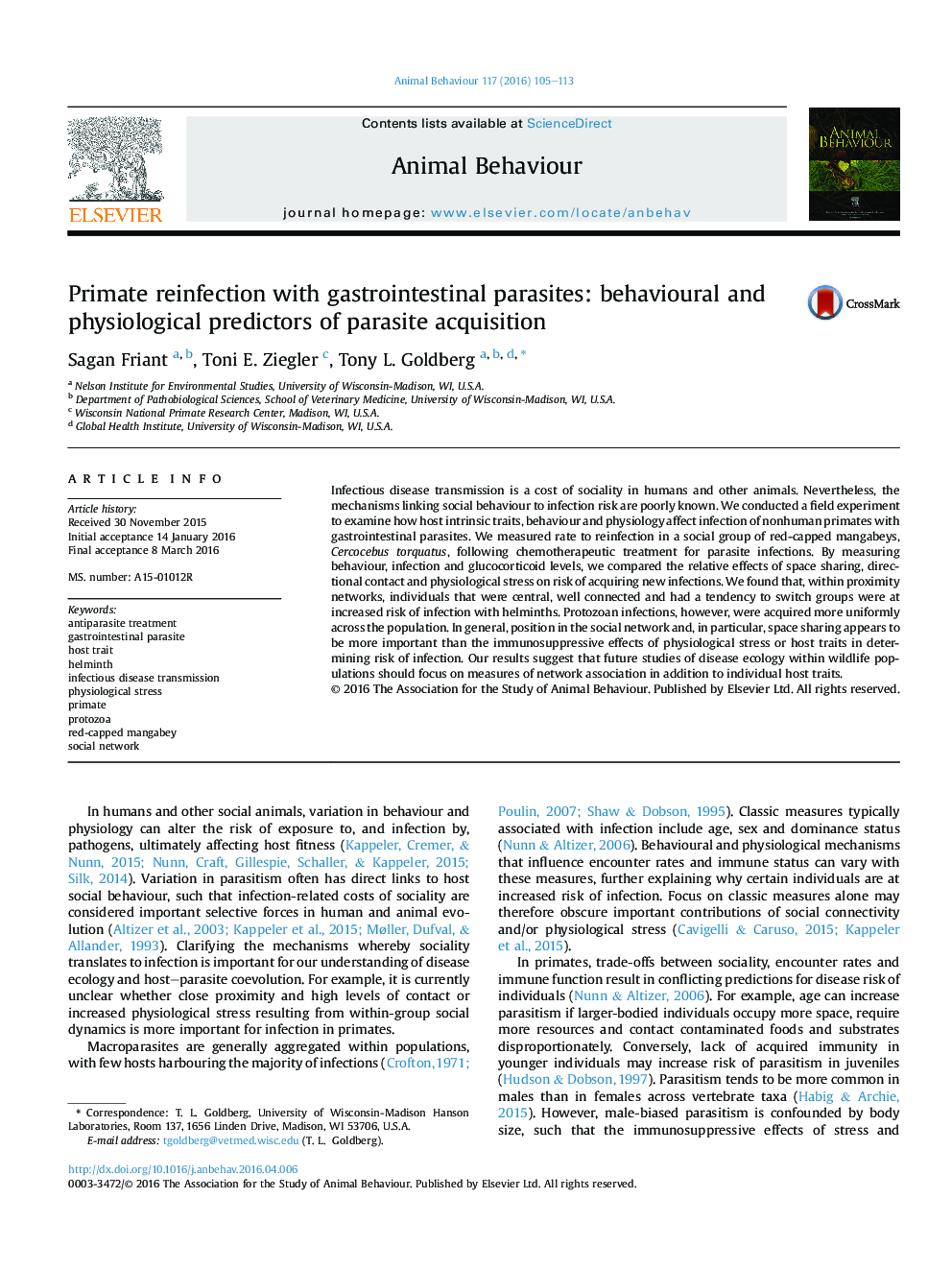| کد مقاله | کد نشریه | سال انتشار | مقاله انگلیسی | نسخه تمام متن |
|---|---|---|---|---|
| 8488964 | 1552211 | 2016 | 9 صفحه PDF | دانلود رایگان |
عنوان انگلیسی مقاله ISI
Primate reinfection with gastrointestinal parasites: behavioural and physiological predictors of parasite acquisition
ترجمه فارسی عنوان
ریسک مجدد پریمان با پارازیت های گوارشی: پیش بینی های رفتاری و فیزیولوژیک از دستیابی به انگل
دانلود مقاله + سفارش ترجمه
دانلود مقاله ISI انگلیسی
رایگان برای ایرانیان
کلمات کلیدی
موضوعات مرتبط
علوم زیستی و بیوفناوری
علوم کشاورزی و بیولوژیک
علوم دامی و جانورشناسی
چکیده انگلیسی
Infectious disease transmission is a cost of sociality in humans and other animals. Nevertheless, the mechanisms linking social behaviour to infection risk are poorly known. We conducted a field experiment to examine how host intrinsic traits, behaviour and physiology affect infection of nonhuman primates with gastrointestinal parasites. We measured rate to reinfection in a social group of red-capped mangabeys, Cercocebus torquatus, following chemotherapeutic treatment for parasite infections. By measuring behaviour, infection and glucocorticoid levels, we compared the relative effects of space sharing, directional contact and physiological stress on risk of acquiring new infections. We found that, within proximity networks, individuals that were central, well connected and had a tendency to switch groups were at increased risk of infection with helminths. Protozoan infections, however, were acquired more uniformly across the population. In general, position in the social network and, in particular, space sharing appears to be more important than the immunosuppressive effects of physiological stress or host traits in determining risk of infection. Our results suggest that future studies of disease ecology within wildlife populations should focus on measures of network association in addition to individual host traits.
ناشر
Database: Elsevier - ScienceDirect (ساینس دایرکت)
Journal: Animal Behaviour - Volume 117, July 2016, Pages 105-113
Journal: Animal Behaviour - Volume 117, July 2016, Pages 105-113
نویسندگان
Sagan Friant, Toni E. Ziegler, Tony L. Goldberg,
